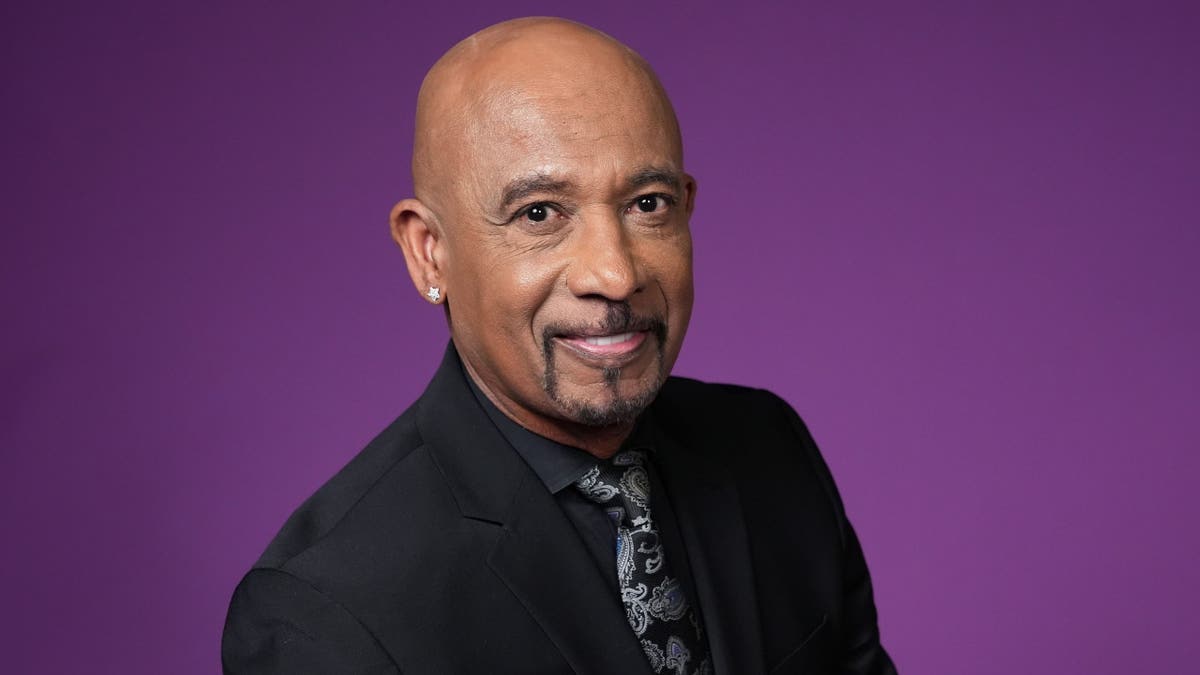Television host Montel Williams is speaking out about the life-altering moment he was diagnosed with multiple sclerosis (MS) and the painful journey that followed.
In a candid conversation with Sean Hannity on Fox Nation, Williams recalled the blunt warning he received from his doctor in 1999.
"He looked me in the face in his office and said, ‘You know the type of MS you're in, when it hits people of your race, it normally is really very debilitating,’" said Williams, who hosted "The Montel Williams Show" from 1991 to 2008.
"He said you're probably going to be in a wheelchair in five years, so you need to, like, get your sh** together.’"
Williams was stunned. At the time, many experts believed MS primarily affected White individuals of European descent. "I didn’t think I could get MS," he admitted.
The National Multiple Sclerosis Society now acknowledges that MS does impact members of the Black community, and that they may face more aggressive progression of the disease.
MONTEL WILLIAMS SAYS HE'S 'LUCKY TO BE ALIVE' AFTER SUFFERING FROM A SUDDEN STROKE

BURBANK, CALIFORNIA: In this image released on November 8, Montel Williams poses for a portrait during the 27th Annual FAMILY FILM AND TV AWARDS airing November 9th, exclusively on the CBS Television Network and available for live and on-demand streaming via Paramount+ in Burbank, California. (Presley Ann/Getty Images)
After stepping off a plane and experiencing intense pain in his feet and legs, a specialist confirmed the diagnosis. "It was like you took a fire poker, shoved it right up to my heel, into my shins, and it was there 24 hours a day," he recalled.
In hindsight, he now believes there were earlier symptoms he missed, dating back to his time around when he graduated from the Naval Academy over a decade before.
Multiple sclerosis is a chronic autoimmune disease that affects the central nervous system, impacting the brain, spinal cord, and optic nerves. There is currently no cure for MS, although there are treatments to help sufferers mitigate their pain.
Shortly after his diagnosis, doctors advised Williams to slow down and step away from his demanding television career.
"When I got off the plane, my friend, who was a doctor, sent me to another doctor. And that doctor told my ex-wife, 'your husband's got MS.'"
"He said, ‘yeah, I think you need to stop doing this heavy [activity],’" he said. "’All these things are too stressful for you. And stop the weight-lifting, but you need to stop your show because there's too much anxiety and that, it's probably stressing you out too much.'"
COMMON VITAMIN SHOWN TO REDUCE AUTOIMMUNE DISEASE
Instead of pulling back, Williams continued pushing forward. But as his pain worsened, he began relying heavily on prescription opioids.
He admitted that he used his celebrity status to score the various pills he was taking.
"I was on Vicodin, I took… Percocets, Vicocets. Any one of the sets I took."
Williams said his pill use spiraled out of control for nearly two years. For about six months during that time, he considered himself addicted.
"It was about a six-month period of time where I know I was addicted because I wouldn't walk out the door without throwing four of them in my mouth at the beginning of the day, another four about two hours later, another four about two hours later," he told Hannity.
At one point, he said he was even using a morphine drip. It wasn’t until a doctor intervened that he began to break the cycle.
"The more I took, the less they worked and that's something that we know for a fact. Science knows that these opioids were never created for long-term use."
SELMA BLAIR SAYS SHE'S 'TRULY RELAPSE-FREE' AFTER 7-YEAR BATTLE WITH MS
After finally stepping away from opioids, Williams sought healthier ways to manage his condition. He credits a vegan diet with helping to reduce inflammation and says CBD has also played a role in relieving pain.
But perhaps the most important change came from within.
"I went on a vegan, vegetarian diet for about five years. I didn't do anything but liquid food. The biggest nemesis of MS is inflammation, so I wanted to reduce the inflammation. Once I learned how to reduce inflammation, that started mitigating a little bit of pain," he explained.
"Then I started learning some things of how to literally psychologically grab it, put it in a box, stick it away. As long as I keep it in that box," he claims, he’s better able to cope.
Getting emotional, he added: "While we have to talk about it, it comes back."
The full interview between Sean Hannity and Montel Williams is now available to stream on Fox Nation.
Madison is a production assistant for Fox News Digital on the Flash team.
.png)
 German (DE)
German (DE)  English (US)
English (US)  Spanish (ES)
Spanish (ES)  French (FR)
French (FR)  Hindi (IN)
Hindi (IN)  Italian (IT)
Italian (IT)  Russian (RU)
Russian (RU)  5 hours ago
1
5 hours ago
1









Comments